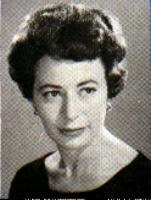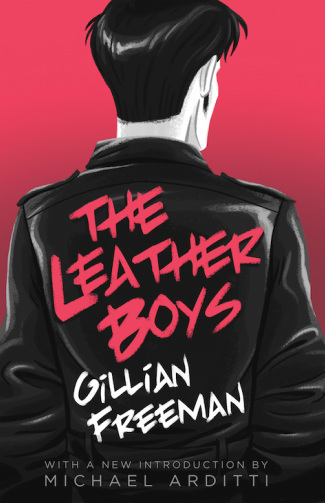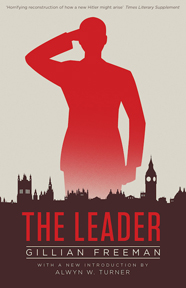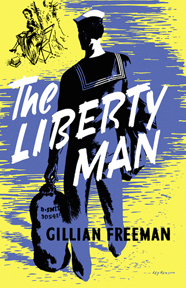|
BOOK DETAILS
Trade paper ISBN-13: 978-1939140777 List Price: $15.99 U.S. Pages: 146 Published: 2013 |
The Leather Boys (1961)
Gillian Freeman With a new introduction by Michael Arditti Book Description
Dick and Reggie are ‘leather boys’, working-class London teens with an affinity for leather jackets and motorcycles who become friends through their involvement in a gang. For Dick, the money he gets from the gang’s thefts helps to support his ailing grandmother; for Reggie, membership in the gang provides relief from an unhappy home life and a loveless marriage. When Reggie decides to leave his unfaithful wife and move in with Dick, the two soon discover their feelings for each other are much stronger than mere friendship. As they make plans for their future together, will they find the happiness they seek, or is their love doomed to end in tragedy? The first novel to offer an authentic portrayal of love between ordinary, working-class young men, Gillian Freeman’s The Leather Boys (1961) is a groundbreaking classic of gay fiction that remains moving and compelling today. This edition includes a new introduction by Michael Arditti, who situates The Leather Boys alongside other early gay works by women writers like Mary Renault and Marguerite Yourcenar and argues that Freeman’s novel and its 1964 film adaptation played a vital part in liberalizing British attitudes towards homosexuality. |
reviews
‘Gillian Freeman is among the finest contemporary novelists.’ – Brigid Brophy, New Statesman
‘Realistic and unsentimental ... Their relationship is handled with delicacy and has an authentic ring.’ – Sunday Telegraph
‘[S]ober and scrupulously documented ... accurately and touchingly demonstrates the unselfconscious and comparatively guiltless love which working-class men often feel for each other.’ – Time and Tide
‘Realistic and unsentimental ... Their relationship is handled with delicacy and has an authentic ring.’ – Sunday Telegraph
‘[S]ober and scrupulously documented ... accurately and touchingly demonstrates the unselfconscious and comparatively guiltless love which working-class men often feel for each other.’ – Time and Tide
ALSO AVAILABLE THROUGH ONLINE RETAILERS
MORE TITLES BY THIS AUTHOR
AUTHOR BIOGRAPHY

Gillian Freeman was born in London in 1929. She earned her degree with honours in English literature and philosophy from the University of Reading in 1951 and afterwards worked as a copywriter, schoolteacher, reporter, and literary secretary to the novelist Louis Golding before embarking on a literary career of her own. In response to an advertisement placed by the fledgling literary agency of Anthony Blond, Freeman submitted the manuscript of her first novel, The Liberty Man, which went on to be published by Longmans and was one of the best reviewed novels of 1955. By 1961, Blond had his own publishing house and wanted to publish a ‘Romeo and Romeo’ novel with working-class gay protagonists; the result was The Leather Boys, published under the pseudonym of Eliot George. The book was well received and went into numerous paperback printings in the US and UK during the 1960s and ’70s before Gay Men’s Press reprinted it in 1985 as part of its Gay Modern Classics series; it was also adapted for Sidney J. Furie’s Golden Globe-nominated 1964 film, for which Freeman wrote the screenplay.
Freeman’s other novels include The Leader (1965), a disturbing ‘what if’ story about a Fascist’s rise to power in Britain; The Alabaster Egg (1970), a historical novel whose title refers to a gift from the gay King Ludwig II to his lover that later finds its way into the possession of a young woman in Nazi Germany; Nazi Lady (1978), the fictional diaries of a woman of the Third Reich; and An Easter Egg Hunt (1981), the tragic story of a young girl in Edwardian England who disappears from a boarding school on Easter Sunday. More recently, Freeman’s His Mistress’s Voice (1999) and But Nobody Lives in Bloomsbury (2006) have been published by Arcadia Books.
In addition to her novels, Freeman has written a number of screenplays, including That Cold Day in the Park (1969) and I Want What I Want (1972). Her nonfiction works include the influential study of pornography The Undergrowth of Literature (1967) and Ballet Genius: Twenty Great Dancers of the Twentieth Century (1988), the latter co-authored with her husband, the novelist and ballet critic Edward Thorpe. Freeman also wrote the scenario for Sir Kenneth MacMillan’s immensely successful ballet Mayerling, which premiered in London in 1978 and which has since entered the repertoires of ballet companies all over the world.
Gillian Freeman and Edward Thorpe have two daughters and live in London.
Freeman’s other novels include The Leader (1965), a disturbing ‘what if’ story about a Fascist’s rise to power in Britain; The Alabaster Egg (1970), a historical novel whose title refers to a gift from the gay King Ludwig II to his lover that later finds its way into the possession of a young woman in Nazi Germany; Nazi Lady (1978), the fictional diaries of a woman of the Third Reich; and An Easter Egg Hunt (1981), the tragic story of a young girl in Edwardian England who disappears from a boarding school on Easter Sunday. More recently, Freeman’s His Mistress’s Voice (1999) and But Nobody Lives in Bloomsbury (2006) have been published by Arcadia Books.
In addition to her novels, Freeman has written a number of screenplays, including That Cold Day in the Park (1969) and I Want What I Want (1972). Her nonfiction works include the influential study of pornography The Undergrowth of Literature (1967) and Ballet Genius: Twenty Great Dancers of the Twentieth Century (1988), the latter co-authored with her husband, the novelist and ballet critic Edward Thorpe. Freeman also wrote the scenario for Sir Kenneth MacMillan’s immensely successful ballet Mayerling, which premiered in London in 1978 and which has since entered the repertoires of ballet companies all over the world.
Gillian Freeman and Edward Thorpe have two daughters and live in London.



